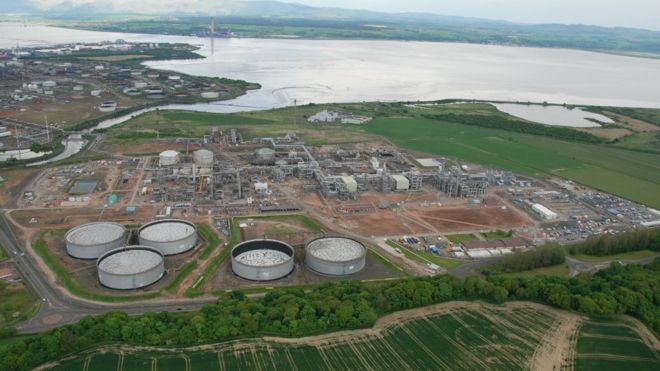
The operator of the crucial Forties Pipeline System (FPS) has warned it could close 10 years early due to the UK government’s North Sea tax policies.
Ineos Forties Pipeline System chief executive Andrew Gardner told the Telegraph the network may shut down as early as 2030.
The FPS, part of billionaire Sir Jim Ratcliffe’s Ineos group, handles 29% of UK oil and 30% of its gas, connecting 80 offshore fields to the UK mainland.
Last year, Ratcliffe criticised UK politicians over what he described as a “total lack” of energy policy as flows through the FPS declined by around 40%.
With a nameplate capacity of over 600,000 barrels per day, Ineos acquired the 235-mile long network from BP in a 2017 deal worth around $250 million. At the time flows stood at around 450,000 bpd.
As a mature basin output from the North Sea has been in decline for some time, though data from Offshore Energies UK suggests the fall has accelerated in recent years.
Forties Pipeline System
Speaking to the Telegraph, Gardner said 2017 the company told its customers and workforce it would operate until “2040 or beyond”.
“But if Labour’s tax policy stops our customers offsetting their drilling and other investment costs against tax, then volumes will shrink – and we’re looking at 2030-35 as a more likely end date,” Gardner said.
If Labour follows through on plans to remove investment and capital allowances from the Energy Profits Levy in the October budget, Garner warned the volumes flowing through the FPS would decline faster.
“The fear is that if Labour removes these allowances then annual output declines will accelerate from 5pc to more than 15pc – and the volumes flowing through the [Forties Pipeline System] will shrink even more,” he said.
A spokesperson for Ratcliffe told the Telegraph: “Over the decades the UK has invested billions in North Sea infrastructure – which continues to serve the UK economy, society and the Exchequer extremely well.
“It is unfathomable that Labour’s policies will burn these in a flash. It is throwing away valuable technology along with the skilled workers necessary to meet today’s energy needs and to transition towards a low carbon future.”
Recommended for you

 © Ineos
© Ineos